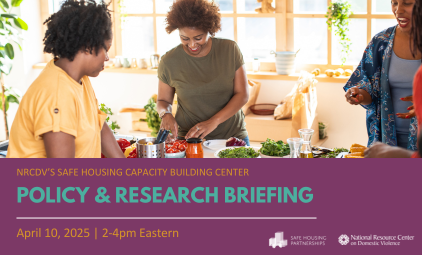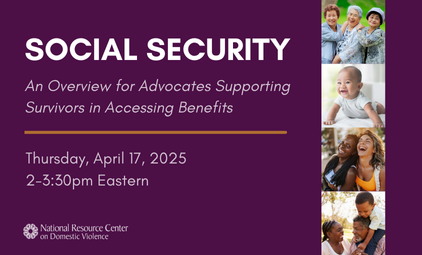For: Teams of 2-3 executive directors and leadership staff of organizations addressing intimate-partner violence (DV/SA/HT). Goal: This workshop supports DV/SA/HT organizations to enhance practices to lead organizations effectively, and build a resilient organizational culture to fulfill mission. Date: April 23-25, 2025 Application Deadline: March 5, 2025.
VAWnet Event Calendar
People with disabilities are at significantly higher risk of domestic and sexual violence than those without disabilities. Survivors often face more frequent, prolonged abuse and multiple perpetrators. In this webinar, Activating Change staff will explore the unique experiences of people with disabilities and Deaf individuals—from the violence they face to the barriers in accessing criminal justice systems and victim services—and share strategies to improve responses and outcomes for these survivors.
Social media plays a far-reaching role in shaping mental health, relationships, and public trust. The U.S.
We recognize that working in this field can feel like we’re on the never-ending path to create change that we’ll never see. It’s work that can consist of equal parts hope, optimism, frustration, and exhaustion. Through this year’s theme “Forging Ahead: Our Map to a World Without Violence,” we hope to bring opportunities for the advocacy community to connect, share information, and engage in efforts needed to address and prevent intimate partner violence, family violence, sexual violence, dating violence, and/or stalking.
Indiana Youth Institute’s 2025 National Summit on Youth Well-Being tackles the big challenges facing today’s youth. We’re zeroing in on the kids who often get overlooked—those from low-income families, communities of color, immigrant backgrounds, and kids who’ve been through challenges like trauma or neglect. This conference brings together expert speakers from across the country to share their knowledge and give you real-world strategies to make a difference.
Across the nation, communities are coming together to play an active role in shaping the mental health services that impact their lives. By fostering partnerships and collaborative efforts, we can transform existing systems to better meet the needs of children, youth, and families. This holistic approach ensures that community voices are central, creating services that are more effective, equitable, and responsive.














